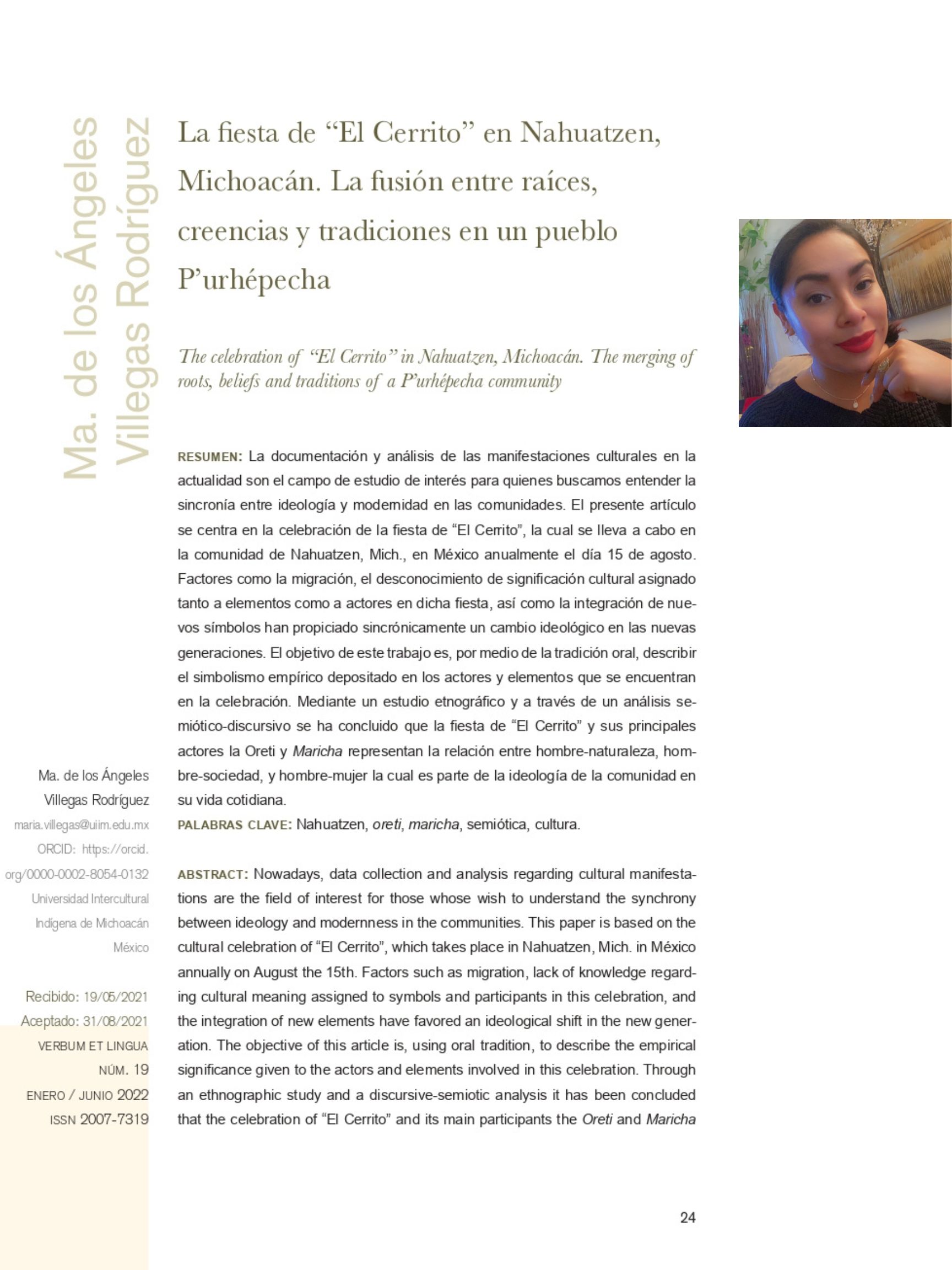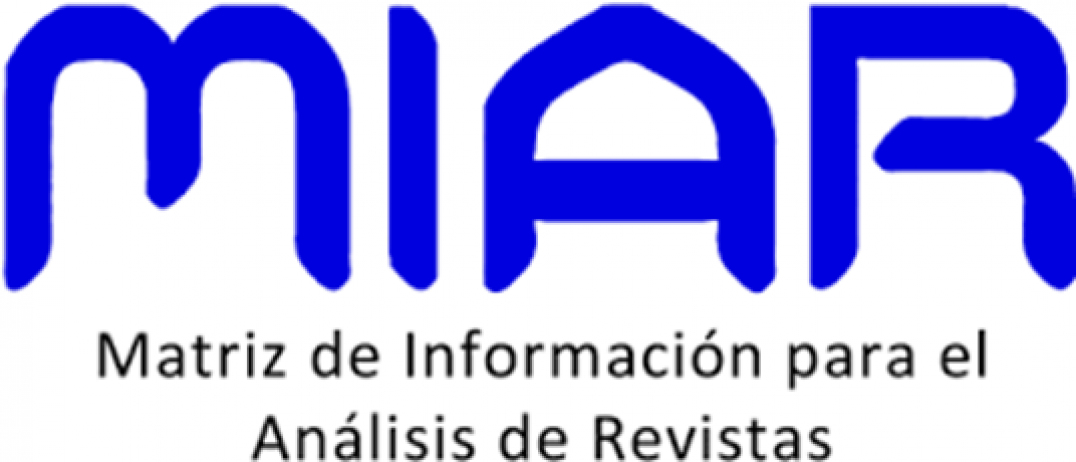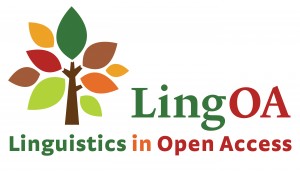La fiesta de “El Cerrito” en Nahuatzen, Michoacán. La fusión entre raíces, creencias y tradiciones en un pueblo P’urhépecha
DOI:
https://doi.org/10.32870/vel.vi19.170Palabras clave:
Nahuatzen, Oreti, Maricha, Semiótica, CulturaResumen
La documentación y análisis de las manifestaciones culturales en la actualidad son el campo de estudio de interés para quienes buscamos entender la sincronía entre ideología y modernidad en las comunidades. El presente artículo se centra en la celebración de la fiesta de “El Cerrito”, la cual se lleva a cabo en la comunidad de Nahuatzen, Mich., en México anualmente el día 15 de agosto. Factores como la migración, el desconocimiento de significación cultural asignado tanto a elementos como a actores en dicha fiesta, así como la integración de nuevos símbolos han propiciado sincrónicamente un cambio ideológico en las nuevas generaciones. El objetivo de este trabajo es, por medio de la tradición oral, describir el simbolismo empírico depositado en los actores y elementos que se encuentran en la celebración. Mediante un estudio etnográfico y a través de un análisis semiótico-discursivo se ha concluido que la fiesta de “El Cerrito” y sus principales actores la Oreti y Maricha representan la relación entre hombre-naturaleza, hombre-sociedad, y hombre-mujer la cual es parte de la ideología de la comunidad en su vida cotidiana.
Descargas
Citas
Anderson, I. F. (2016). Charles S. Peirce y el signo tres. Metodología semiológica para diseñadores. Bold, 3, 39-48. Disponible en: https://core.ac.uk/download/pdf/76495381.pdf.
Bericat, E. (2016). “Cultura y sociedad”, en J. Iglesias de Ussel, A, Trinidad Requena & R. M. Soriano Miras (dirs.). La sociedad desde la sociología. Una introducción a la sociología general. 123-154. Tecnos.
Broda, J. & Good, C. (2004). Historia y vida ceremonial en las comunidades mesoameri-canas: los ritos agrícolas. INAH.
Cipriani, R. (2009). El pueblo solidario. Nahuatzen: de la cultura purépecha a la moder-nización. El colegio mexiquense.
Guzmán, J. (2005). Ojos que no ven, corazón que no siente. Tesis Doctoral Universidad Nacional Autónoma de México.
Dietz, G. (2001). La Comunidad Purhépecha como cultura Híbrida: regionalizaciones y localizaciones de “lo indígena” en México. Diálogos Latinoamericanos, 3, 3-42.
Lotman, I. (1996). La semiosfera I Semiótica de la cultura y del texto. Ediciones Cátedra.
Gorlée, D. (2010). La semiótica tríadica de Pierce y su aplicación a los géneros literarios. Editorial del cardo. Biblioteca Virtual Miguel de Cervantes.
Santaella, L. (2001). ¿Por qué la semiótica de Pierce es también una teoría de la comu-nicación?. Cuadernos de la Facultad de Humanidades y Ciencias Sociales - Universi-dad Nacional de Jujuy, 17, 415-422.
Disponible en: https://www.redalyc.org/articulo.oa?id=18501725
Trujillo Sáez, F. (2005). En Torno a la interculturalidad: reflexiones sobre cultura y comu-nicación para la didáctica de la lengua. Porta Linguarum, 4, 23-39.
Villegas, M. A. (2017). Oreti y Maricha. En la fiesta de: El Cerrito en Nahuatzen. -Análisis Semiótico Discursivo. Tesis de Licenciatura. Pátzcuaro: Universidad Intercultural Indíge-na de Michoacán.
Disponible en: http://repositoriouiim.xyz:8080/xmlui/handle/123456789/60

Descargas
Publicado
Versiones
- 2024-09-06 (2)
- 2022-06-21 (1)













